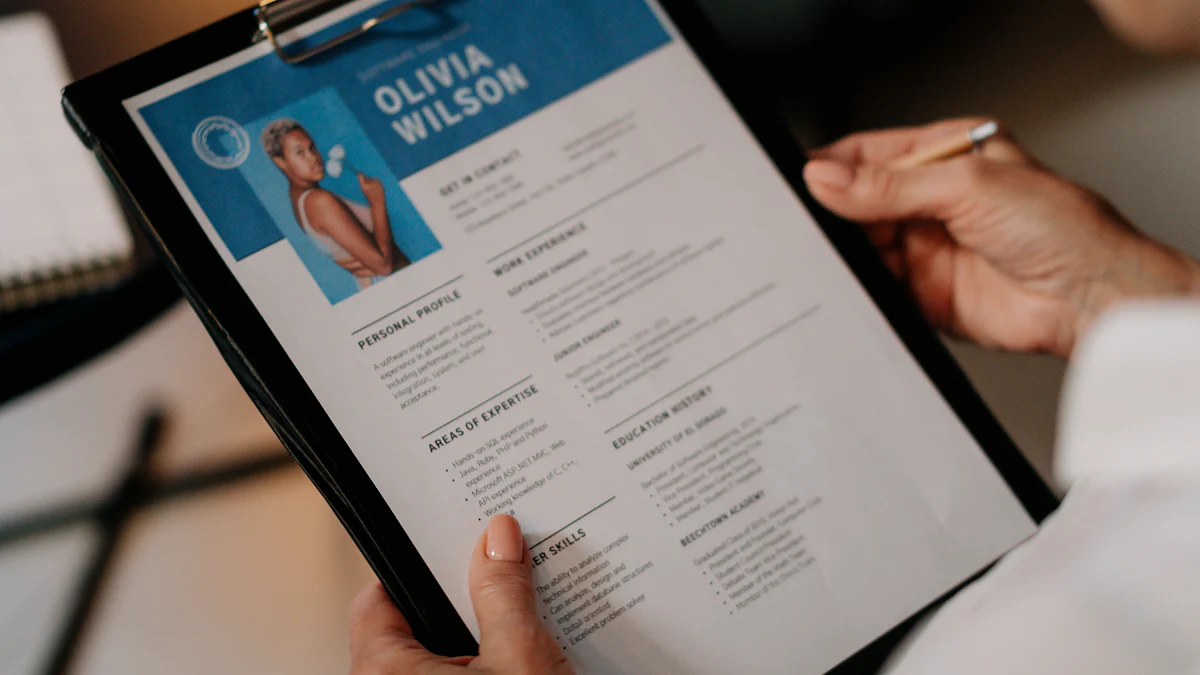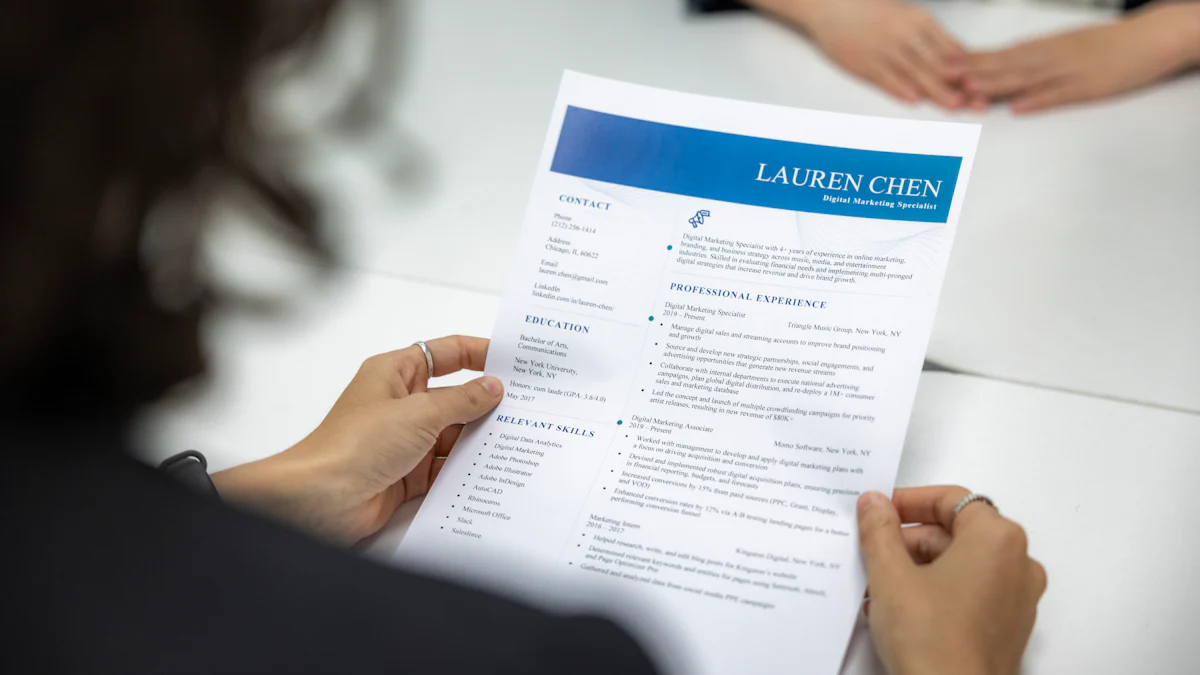How to Showcase Unpaid Research on Your Resume
Try Aihirely for
Smarter Interview Prep
Experience real-time AI support tailored to your Resume.
Boost your confidence and ace every question with
AI Mock Interview.

Image Source: pexels
Showcasing unpaid research on your resume can feel tricky, right? You might wonder if it’s worth including or even how to present it. Here’s the truth: unpaid research holds real value. Whether you worked independently or asked, “does working for a professor count as research on resume?”, the answer is yes! Highlight it confidently.
Key Takeaways
-
Unpaid research is important. It shows your skills and curiosity. It also proves you are eager to learn. Add it proudly to your resume.
-
Make a ‘Research Experience’ section on your resume. This lets employers easily notice your work and abilities.
-
Follow the APR method—Action, Project/Problem, Results—to explain your unpaid research. This way, your impact is clear and strong.
Why Unpaid Research Matters

Image Source: pexels
The Value of Unpaid Research in Career Development
Unpaid research can be a game-changer for your career. It’s not just about the work you do—it’s about the skills you gain and the doors it opens. When you dive into research, you’re learning how to solve problems, analyze data, and think critically. These are skills employers love to see. Plus, research shows you’re curious and willing to go the extra mile to learn.
Think about it. If you’ve worked on a project, even without pay, you’ve likely developed expertise in a specific area. Maybe you’ve written reports, presented findings, or collaborated with a team. These experiences are gold for your resume. They show you’re proactive and capable of handling real-world challenges. So, don’t underestimate the value of unpaid research—it’s a stepping stone to bigger opportunities.
Does Working for a Professor Count as Research on Resume?
Absolutely! If you’ve worked for a professor, it can definitely count as research experience on your resume. The key is to highlight what you contributed. Did you review academic papers or abstracts? That’s a big deal. Participating as a judge in the academic field shows you’ve engaged with scholarly work. Maybe you helped with original research or contributed to a publication. These are significant achievements that go beyond just helping in a lab.
Your work should have made a meaningful impact. Contributions that advance the academic field—like published materials or citations—carry weight. Even if your role was unpaid, it’s the quality of your work that matters. So, when you ask, “does working for a professor count as research on resume?”, the answer is a resounding yes. Just make sure to present it in a way that highlights its importance.
Structuring Unpaid Research on Your Resume
Creating a ‘Research Experience’ Section
Adding a dedicated “Research Experience” section to your resume can make unpaid research stand out. This section helps recruiters quickly spot your contributions. If your research is unpaid but relevant to your career goals, it deserves its own spotlight.
Here’s how you can structure it:
-
Create a separate “Research Experience” section if you’ve worked on multiple projects.
-
If your research ties directly to a job, include it under the “Experience” section.
-
For students or recent grads, list research accomplishments under “Education.”
-
If you’ve published work or presented findings, add a “Publications” or “Presentations” section.
This approach ensures your unpaid research gets the attention it deserves.
Labeling and Formatting Unpaid Research
Formatting unpaid research properly can make all the difference. Use clear labels like “Research Assistant” or “Independent Researcher” to define your role. Don’t shy away from unpaid work—focus on your contributions instead.
For example:
-
Assisted in cancer treatment research, analyzing data and presenting findings.
-
Conducted a study on social media’s impact on mental health, designing surveys and analyzing results.
-
Collaborated on a STEM study, conducting interviews and presenting at a conference.
These descriptions highlight your skills and achievements, not whether the work was paid.
Using the APR Format to Showcase Contributions
The APR format—Action, Project/Problem, Results—can help you describe your unpaid research effectively. This method focuses on what you did, the problem you tackled, and the results you achieved.
For instance:
-
Action: Designed and conducted a survey.
-
Project/Problem: Studied the effects of exercise on cognitive function.
-
Results: Presented findings at a departmental conference.
This format makes your contributions clear and impactful. Whether you’re answering questions like “does working for a professor count as research on resume,” or showcasing independent work, APR ensures your efforts shine.
Highlighting Transferable Skills from Research

Image Source: unsplash
Analytical Thinking and Problem-Solving
Research sharpens your ability to think critically and solve problems. When you analyze data or test hypotheses, you’re training your brain to approach challenges logically. Employers value this skill because it shows you can tackle complex issues.
Think about the times you identified patterns in data or found solutions to unexpected problems during your research. These moments highlight your analytical thinking. For example, if you designed an experiment to test a theory, you demonstrated problem-solving skills. Use these examples to show how your research experience makes you a valuable candidate.
Communication and Collaboration Skills
Research often involves teamwork and sharing ideas. Whether you worked with a professor, peers, or a larger team, you likely developed strong communication skills. Writing reports, presenting findings, or discussing results with others shows you can convey complex information clearly.
Collaboration is another key skill. If you worked on a group project, you learned how to share responsibilities and contribute to a common goal. Employers look for candidates who can work well with others. Highlight these experiences to show you’re a team player with excellent communication abilities.
Time Management and Organization
Balancing research with other responsibilities teaches you how to manage your time effectively. Research projects often come with deadlines, requiring you to stay organized and prioritize tasks. These skills are essential in any workplace.
For instance, if you juggled multiple experiments or managed a long-term project, you proved your ability to stay on track. Mention how you planned your work, met deadlines, and kept everything organized. These examples show you’re reliable and capable of handling multiple tasks efficiently.
Tip: When describing these skills on your resume, focus on specific examples. Employers love to see how your experiences translate into workplace success.
Additional Tips and Resources
Using Online Resume Tools and Templates
Online tools and templates can save you time and make your resume look polished. They’re especially helpful if you’re unsure how to format your unpaid research experience. Many templates are designed specifically for research roles, so you can find one that fits your needs.
Here are a few great options:
-
Elegant Resume Template – Ideal for mid-level or senior candidates.
-
Microsoft Word Template – A simple and professional option.
-
Google Docs Template – Easy to edit and share.
-
PDF Example – A ready-to-use example for research assistants.
These templates can help you highlight your unpaid research in a way that stands out to employers.
Pro Tip: Choose a template that matches the tone of the job you’re applying for. A clean, professional design works best for research roles.
Attending Resume-Building Workshops
Resume-building workshops are a fantastic way to improve your resume. These sessions often provide expert advice on how to structure your experience and tailor it to specific roles. You’ll also learn how to use action verbs and quantify your achievements, which can make your unpaid research shine.
Check with your school, local library, or community center for upcoming workshops. Many universities and career centers host free sessions for students and recent grads. Online platforms like LinkedIn Learning also offer resume-building courses you can take at your own pace.
Did You Know? Some workshops even include one-on-one coaching, giving you personalized feedback to make your resume even stronger.
Seeking Feedback from Professionals
Getting feedback from professionals can take your resume to the next level. Share your draft with a mentor, professor, or someone working in your target field. They can offer insights on how to present your unpaid research effectively.
You can also connect with professionals through networking events or platforms like LinkedIn. Many people are happy to review resumes and share tips. If you’re part of a professional organization, check if they offer resume review services.
Quick Tip: When asking for feedback, be specific. For example, ask if your research section clearly highlights your skills or if your formatting looks professional.
Taking these steps will help you create a resume that truly reflects your hard work and potential.
Unpaid research isn’t just filler for your resume—it’s a powerful asset. It shows your dedication, curiosity, and ability to tackle challenges. When you highlight it confidently, you prove your value to employers.
Don’t underestimate your unpaid work. Use it to tell your story and stand out in the job market. You’ve got this! 🚀
FAQ
How do I describe unpaid research without sounding inexperienced?
Focus on your contributions and results. Use action verbs like “analyzed,” “designed,” or “collaborated.” Highlight skills gained and achievements, not whether the work was paid.
Tip: Employers value results, not paychecks.
Should I include unpaid research if it’s unrelated to my career goals?
Yes! Unpaid research shows transferable skills like problem-solving, teamwork, and time management. These skills apply to any job and make you a stronger candidate.
Pro Tip: Tailor your description to match the job requirements.
Can I list unpaid research under professional experience?
Absolutely! If the research aligns with the job, include it under “Professional Experience.” Use clear labels like “Research Assistant” to make it stand out.
Quick Tip: Keep formatting consistent with other roles on your resume.
